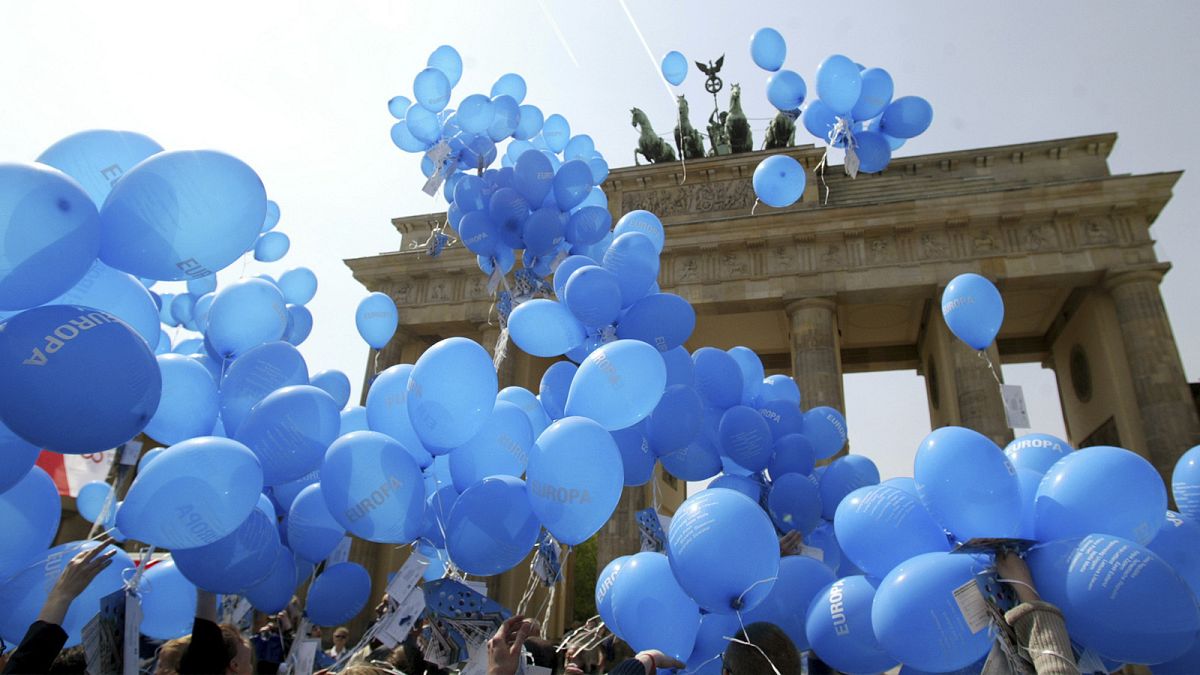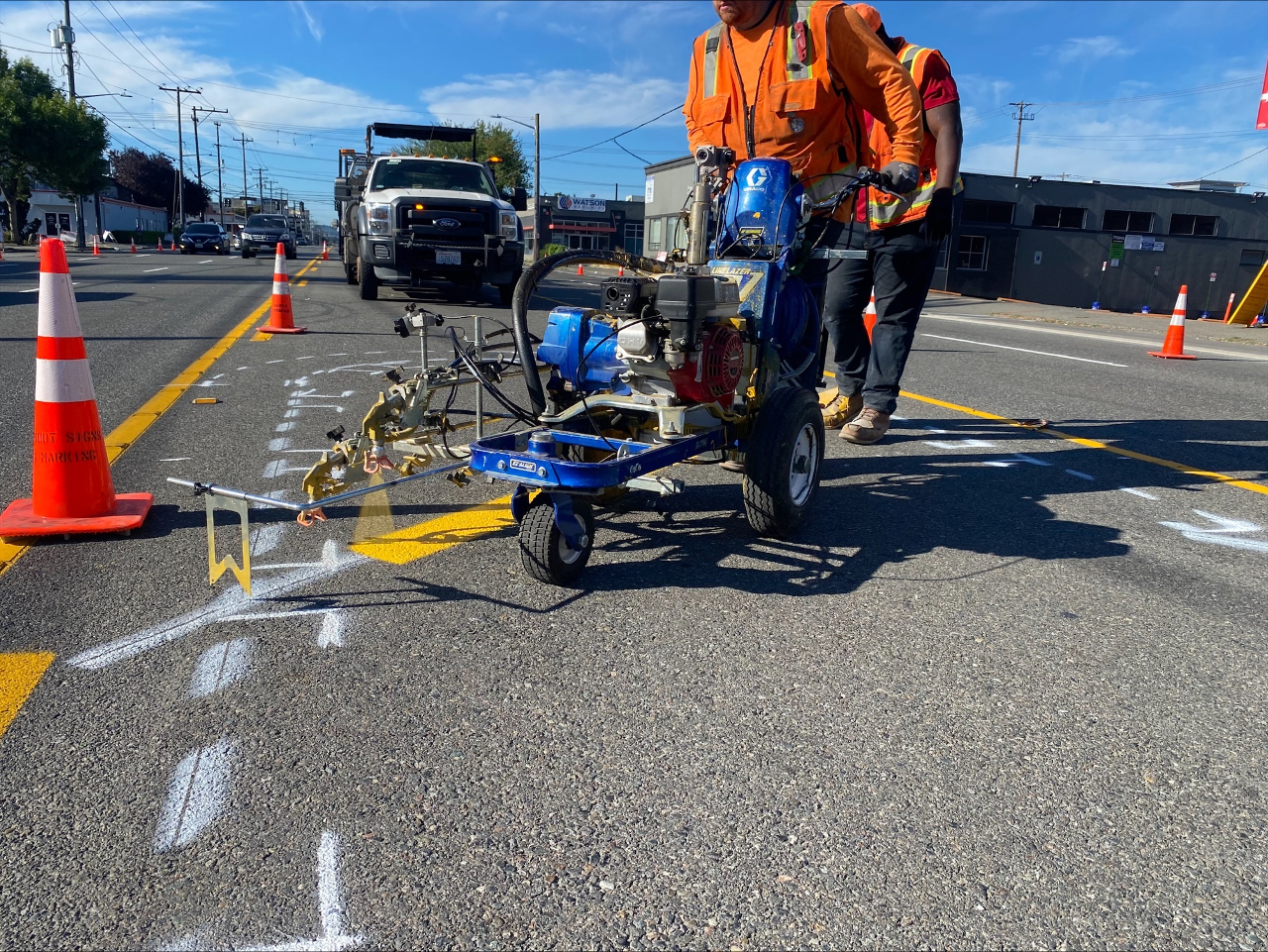World
European Union marks 20 years since 'Big Bang' enlargement

One senior analyst said the bloc has prospered overall, but there have been ”bumps on the road, otherwise known as Poland and Hungary and possibly Slovakia”. He warned of the possibility several current EU-hopefuls might also violate the bloc’s common values and interests.
On 1 May 2004, the leaders of 10 new European Union member states presented their flags to Pat Cox, the then European Parliament president.
The EU grew from 15 to 25 after being joined by Cyprus, Czech Republic, Estonia, Hungary, Latvia, Lithuania, Malta, Poland, Slovakia, and Slovenia.
The bloc now includes 27 countries — Croatia was the most recent addition, joining in 2022. The UK chose to leave following Brexit in June 2016.
The 10 member states represented a 20% increase in population, and the EU territory increased by almost the same percentage.
The total GDP grew by about 9%, while the GDP per capita decreased.
Michael Emerson, Associate Senior Research Fellow at CEPS Brussels, said the expansion had economic and societal benefits, but less so in the political field.
”Economics have gone very well. All of the new member states have been growing faster than all of the old member states. Financial stability has been reasonably good,” he said. ”On the people’s side, the migration movements in and out have been happening very freely and in an orderly manner. Now the politics — there are a few bumps on the road there, otherwise known as Poland and Hungary, and possibly Slovakia.”
In 2017, the European Commission initiated a procedure under Article 7 in response to the risks to the rule of law and EU values in Poland. The European Parliament backed this move in a resolution in March 2018.
Parliament triggered the Article 7 procedure for Hungary in September 2018.
Earlier this year, Adam Bodnar, Polish Public Prosecutor General, presented an “action plan” at a meeting of European affairs ministers in Brussels, consisting of nine bills aimed at restoring judicial independence.
The overture is part of the diplomatic reset that Prime Minister Donald Tusk has spearheaded since taking office in December.
Poland has been under Article 7 since 2017 due to systematic breaches of fundamental values and the continued erosion of judicial independence.
Hungary has been under the first phase of Article 7 since 2018 over the democratic backsliding overseen by Prime Minister Viktor Orban, who is accused of weakening judicial independence, perpetuating cronyism, diluting media pluralism, abusing emergency powers, passing anti-LGBT legislation and hindering asylum rights.
Meanwhile, other European countries are lining up to join, with nine vying for membership as recognised candidate countries — Serbia, Montenegro, Bosnia and Herzegovina, North Macedonia, Albania, Turkiye, Ukraine, Georgia, and Moldova.
To be accepted into the group, each contender must work to make the values and laws of the EU their own.
Last year, the six Western Balkans countries — the five candidate countries plus Kosovo — were presented with a growth plan, and offered access to parts of the EU single market in exchange for substantial reforms as a stepping stone to full membership in the union.
On Monday, European Council President Charles Michel said the EU must get bigger or risk facing a “new Iron Curtain” along its eastern flank.
The remark comes as Russia’s war with member-in-waiting Ukraine intensifies.
“It would be extremely dangerous if you would have an unstable neighbourhood with a lack of prosperity or lack of economic development. These are our common interests – of candidate countries and the EU – to make progress, to speed up,” Michel said.
Emerson pointed out there is a possibility those new countries will violate the bloc’s values and interests.
”For the Balkans, it can proceed with safeguard mechanisms, I would say, on the political side. Of course, Ukraine is a unique case, a big, big one, and we don’t know how the war is going to end,” he said.
Earlier this month, an exclusive IPSOS/Euronews poll found that 45% of citizens across the EU are in favour of Ukraine joining the bloc, while 35% are openly against it and 20% are undecided.
The member state most opposed to Ukraine’s accession is Hungary, where 54% of respondents are against it and 18% are in favour.
The war-torn country and neighbouring Moldova put in their bid to become EU members within weeks of Russia’s full-scale invasion of Ukraine in February 2022 and acquired candidate status in record time.
The EU agreed to start accession negotiations with Ukraine in late 2023.
The country is required to strengthen the fight against corruption, adopt a comprehensive law on lobbying, and finalise the reform of the legal framework for national minorities.

World
1 dead, others injured after London-Singapore flight hit severe turbulence, Singapore Airlines says
BANGKOK (AP) — One person has died aboard a London-Singapore flight that encountered severe turbulence, Singapore Airlines said Tuesday, in which the plane apparently plummeted for a number of minutes before it was diverted to Bangkok, where emergency crews rushed to help injured passengers amid stormy weather.
The Boeing 777-300ER, with a total of 211 passengers and 18 crew members on board, landed in Bangkok at 3:45 p.m. (0845 GMT), the airline said in a Facebook post.
Tracking data captured by FlightRadar24 and analyzed by The Associated Press showed the Singapore Airlines flight cruising at an altitude of 37,000 feet (11,300 meters). Just after 0800 GMT, the Boeing 777 suddenly and sharply pitched down to 31,000 feet (9,400 meters) over the span of some three minutes, the data shows.
The aircraft stayed at 31,000 feet (9,400 meters) for just under 10 minutes before rapidly descending and landing in Bangkok in just under half an hour. The descent happened as the flight was over the Andaman Sea approaching Myanmar.
Emergency crews from Samitivej Srinakarin Hospital, about 20 kilometers (12 miles) away from Suvarnabhumi Airport, were on site to transfer injured passengers from Flight SQ321 from Heathrow off the runway for treatment. Videos posted on the LINE messaging platform by Suvarnabhumi Airport showed a line of ambulances streaming to the scene.
“Singapore Airlines offers its deepest condolences to the family of the deceased,” the airline said. “We are working with the local authorities in Thailand to provide the necessary medical assistance, and sending a team to Bangkok to provide any additional assistance needed.”
World
Australia and New Zealand begin evacuating citizens amid violent unrest in New Caledonia

- Australia and New Zealand have sent planes to evacuate citizens stranded in violence-hit New Caledonia.
- Australian Foreign Minister Penny Wong confirmed clearance from French authorities for two evacuation flights from the archipelago.
- A Royal Australian Air Force C-130 Hercules landed in Noumea, the capital, with a capacity to carry 124 passengers.
Australia and New Zealand sent airplanes to New Caledonia on Tuesday to begin bringing home stranded citizens from the violence-wracked French South Pacific territory.
Australian Foreign Minister Penny Wong said Australia had received clearance from French authorities for two flights to evacuate citizens from the archipelago, where indigenous people have long sought independence from France.
Hours later, a Royal Australian Air Force C-130 Hercules touched down in Noumea, the capital. The plane can carry 124 passengers, according to the Defense Department.
FRENCH SECURITY REINFORCEMENTS EASE VIOLENT UNREST IN NEW CALEDONIA
“We continue to work on further flights,” Wong wrote on the social media platform X on Tuesday.
A RNZAF Hercules C-130 takes off from Whenuapai airbase near Auckland, New Zealand, bound for Noumea, New Caledonia, on a mercy mission to rescue stranded New Zealand tourists, on May 21, 2024. The Australian and New Zealand governments say they are sending planes to evacuate their nationals from violence-scorched New Caledonia. (Michael Craig/NZ Herald via AP)
The Department of Foreign Affairs said 300 Australians were in New Caledonia. It did not immediately confirm whether the Australian-organized flights would also evacuate other stranded foreign nationals, believed to number in the thousands.
New Zealand’s government also announced that it had sent a plane to New Caledonia to begin evacuating about 50 of its citizens.
“New Zealanders in New Caledonia have faced a challenging few days — and bringing them home has been an urgent priority for the government,” Foreign Affairs Minister Winston Peters said. “In cooperation with France and Australia, we are working on subsequent flights in coming days.”
FRANCE GRAPPLES TO REGAIN CONTROL OF VIOLENT UNREST IN NEW CALEDONIA AS DEATH TOLL RISES TO 4
Noumea’s international airport remains closed to commercial flights. Its reopening will be reassessed on Thursday.
At least six people have died and hundreds more have been injured since violence erupted last week in New Caledonia following controversial electoral reforms passed in Paris.
About 270 suspected rioters have been arrested as of Tuesday, and a 6 p.m.-6 a.m. curfew is in effect for the archipelago of about 270,000 people, which is a popular tourist destination with its idyllic beaches and climate.
France has sent in over a thousand security personnel, with hundreds more due to arrive Tuesday, to try to quell the unrest and restore control.
Armed clashes, looting, arson and other violence turned parts of Noumea into no-go zones. Columns of smoke billowed into the sky, hulks of burned cars littered roads, businesses and shops were ransacked and buildings became smoking ruins.
There have been decades of tensions between indigenous Kanaks who are seeking independence and descendants of colonizers who want to remain part of France.
The unrest erupted May 13 as the French legislature in Paris debated amending the French Constitution to make changes to New Caledonia voter lists. The National Assembly in Paris approved a bill that would, among other changes, allow residents who have lived in New Caledonia for 10 years to cast ballots in provincial elections.
Opponents fear the measure will benefit pro-France politicians in New Caledonia and further marginalize Kanaks who once suffered from strict segregation policies and widespread discrimination.
World
Germany's FM visits Kyiv amid Russian offensive on Ukraine's east

Annalena Baerbock renewed calls for partners to send more air defence systems to Ukraine, although Germany’s own deliveries have been slow.
Germany’s foreign minister arrived in Kyiv on Tuesday in the latest public display of support for Ukraine by its Western partners.
Annalena Baerbock renewed Berlin’s calls for partners to send more air defence systems as Ukraine’s depleted troops are trying to hold off a fierce Russian offensive along the eastern border in a critical phase of the war.
“The Russian attacks are directly targeted at the civilian infostructure. Infrastructure like electricity is what you need for daily life, and air defence is so important, but we still need way more air defence because some of the rockets and missiles could be brought down by air defence, but obviously not all of them,” Baerbock said in Kyiv.
“It’s directly and strategically a direct attack on infrastructure to enable the life and survival here in Ukraine, and this is why I am calling worldwide to increase the air defence support, but also to increase support for reconstruction.”
Germany is the second-biggest supplier of military aid to Ukraine after the US. In 2023, it provided around €5 billion in military assistance.
Recently, Berlin pledged a third US-made Patriot battery for Ukraine as Kyiv faces a shortfall of air defences against the ongoing Russian onslaught.
The country has been resisting appeals from Ukrainian officials to provide Ukraine with the coveted Taurus missiles, which have a range of up to 500 kilometres.
Amongst other reasons, German Chancellor Olaf Scholz has claimed that these would involve sending troops directly into Ukraine, which would encourage a direct retaliation from Russia.
Ukraine’s ability to defend itself ‘compromised’
Ukrainian President Volodymyr Zelenskyy has insisted that air defence systems are needed more than ever as the Kremlin’s forces focus their efforts on the eastern Donetsk province and the northeastern Kharkiv region.
“These US and Western policies are severely compromising Ukraine’s ability to defend itself against current Russian offensive operations in northern Kharkiv (region) or any area along the international border where Russian forces may choose to conduct offensive operations in the future,” the Institute for the Study of War said in an assessment late Monday.
Regarding Ukraine’s prospective EU membership, Baerbock said that Ukraine joining the bloc would be “the necessary geopolitical consequence of Russia’s illegal war of aggression.”
Ukraine has made “impressive progress” and must not let up on reforms to the judicial system, fighting corruption and media freedom, Baerbock stated.
Germany is set to host a reconstruction conference for Ukraine next month as it looks to help rebuild the country following the war.
-

 News1 week ago
News1 week agoSkeletal remains found almost 40 years ago identified as woman who disappeared in 1968
-

 Movie Reviews1 week ago
Movie Reviews1 week ago“Kingdom of the Planet of the Apes”: Disney's New Kingdom is Far From Magical (Movie Review)
-

 World1 week ago
World1 week agoIndia Lok Sabha election 2024 Phase 4: Who votes and what’s at stake?
-

 World1 week ago
World1 week agoUkraine’s military chief admits ‘difficult situation’ in Kharkiv region
-

 World1 week ago
World1 week agoCatalans vote in crucial regional election for the separatist movement
-

 Movie Reviews1 week ago
Movie Reviews1 week agoAavesham Movie Review
-

 Politics1 week ago
Politics1 week agoNorth Dakota gov, former presidential candidate Doug Burgum front and center at Trump New Jersey rally
-

 News1 week ago
News1 week agoTrump, Reciting Songs And Praising Cannibals, Draws Yawns And Raises Eyebrows

















